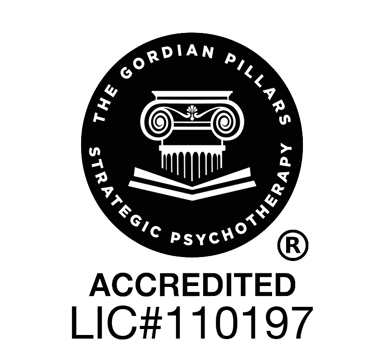Your Journey to Mental Wellbeing Starts Here
Understanding Family Therapy: A Transformative Approach to Navigating Family Dynamics
FAMILY THERAPYSAFETY
Theresa Potter
5/6/20244 min read


Understanding Family Therapy: A Transformative Approach to Navigating Family Dynamics
Family is the cornerstone of our lives, providing us with a sense of belonging, love, and support. However, even the closest families can face challenges and conflicts that can strain relationships and create emotional turmoil. In such times, family therapy can be a powerful tool to help navigate these complexities and foster healing and growth.
What is Family Therapy?
Family therapy, also known as family counseling or family systems therapy, is a therapeutic approach that focuses on improving communication, resolving conflicts, and strengthening relationships within a family unit. Rather than focusing solely on individual members, family therapy recognizes that the dynamics and interactions between family members play a crucial role in shaping individual behaviors and emotions.
Family therapists are trained professionals who work with families to identify and address issues that are causing distress or hindering healthy functioning. They provide a safe and supportive environment where family members can openly express their thoughts and emotions, and work together to find solutions and create positive change.
The Process of Family Therapy
The process of family therapy typically begins with an initial assessment, where the therapist gathers information about the family's history, dynamics, and specific concerns. This helps the therapist gain a comprehensive understanding of the family's unique challenges and develop a tailored treatment plan.
During therapy sessions, the therapist facilitates open and honest communication among family members, encouraging them to express their thoughts, feelings, and concerns. Through active listening and empathetic understanding, the therapist helps family members gain insights into their own behaviors and the impact they have on others.
Family therapy often incorporates various therapeutic techniques and interventions, such as role-playing, problem-solving exercises, and communication skills training. These tools enable family members to develop healthier ways of relating to one another, improve conflict resolution skills, and enhance overall family functioning.
The Benefits of Family Therapy
Family therapy offers a multitude of benefits for families facing challenges. Here are some of the key advantages:
1. Improved Communication:
Effective communication is the foundation of healthy relationships. Family therapy provides a safe space for family members to express their thoughts and feelings openly and honestly. Through guided conversations, family members can learn active listening skills, assertive communication techniques, and develop a deeper understanding of one another's perspectives.
2. Conflict Resolution:
Conflicts are a natural part of any relationship, but when left unresolved, they can escalate and cause significant damage. Family therapy equips families with effective conflict resolution strategies, helping them navigate disagreements and find mutually satisfactory solutions. By learning to resolve conflicts in a healthy manner, families can strengthen their relationships and foster a more harmonious environment.
3. Addressing Unhealthy Behaviors:
Unhealthy behaviors, such as addiction, violence, or emotional abuse, can deeply impact the well-being of family members. Family therapy provides a supportive setting where these behaviors can be addressed and understood within the context of the family system. By exploring the underlying causes and dynamics contributing to such behaviors, families can work together to break harmful patterns and promote healing.
4. Strengthening Family Bonds:
Family therapy focuses on nurturing and strengthening the bonds between family members. By fostering a sense of unity, trust, and support, family therapy helps families build resilience and weather the challenges they face. It encourages family members to appreciate each other's strengths and contributions, fostering a deeper sense of connection and love.
Types of Family Therapy
Family therapy encompasses various approaches, each tailored to address specific issues and goals. Here are two common types of family therapy:
1. Family Systems Therapy:
Family systems therapy views the family as an interconnected system, where each member's behavior affects and is affected by the other members. This approach examines the family's patterns of interaction, roles, and dynamics to identify how they contribute to the presenting issues. By understanding these dynamics, family members can make changes that promote healthier functioning and improved relationships.
2. Functional Family Therapy:
Functional family therapy focuses on addressing specific behavioral issues within the family. It aims to reduce problematic behaviors and improve family functioning by enhancing communication, setting boundaries, and promoting effective problem-solving skills. This approach is often used to address issues such as substance abuse, delinquency, or mental health concerns.
Finding the Right Therapist for Your Family
Choosing the right family therapist is essential for the success of the therapy process. Here are some factors to consider when seeking a family therapist:
1. Qualifications and Experience:
Ensure that the therapist you choose is licensed and has specific training in family therapy. Look for experience working with families facing similar challenges to yours.
2. Approach and Compatibility:
Consider the therapist's therapeutic approach and whether it aligns with your family's values and goals. It's important to feel comfortable and connected with the therapist, as this will facilitate open and honest communication.
3. Availability and Accessibility:
Consider practical factors such as the therapist's location, availability, and cost. Family therapy is most effective when sessions can be attended consistently and without undue stress.
4. Recommendations and Referrals:
Seek recommendations from trusted sources, such as friends, family, or healthcare professionals. They may be able to provide insights or refer you to reputable family therapists.
A Journey of Healing, Resilience, and Growth
Family therapy has the power to transform the lives of individuals and families alike. By addressing underlying issues, improving communication, and fostering a supportive environment, it can pave the way for healing, resilience, and growth.
If your family is facing challenges or struggling with unresolved conflicts, consider reaching out to a family therapist. Together, you can embark on a journey of self-discovery, understanding, and ultimately, a stronger and more harmonious family unit.
Get in touch
Take the first step towards a brighter, more balanced life. Explore the transformative potential of hypnotherapy and psychotherapy with Serene Solutions, and embark on a journey of healing, growth, and self-discovery.










